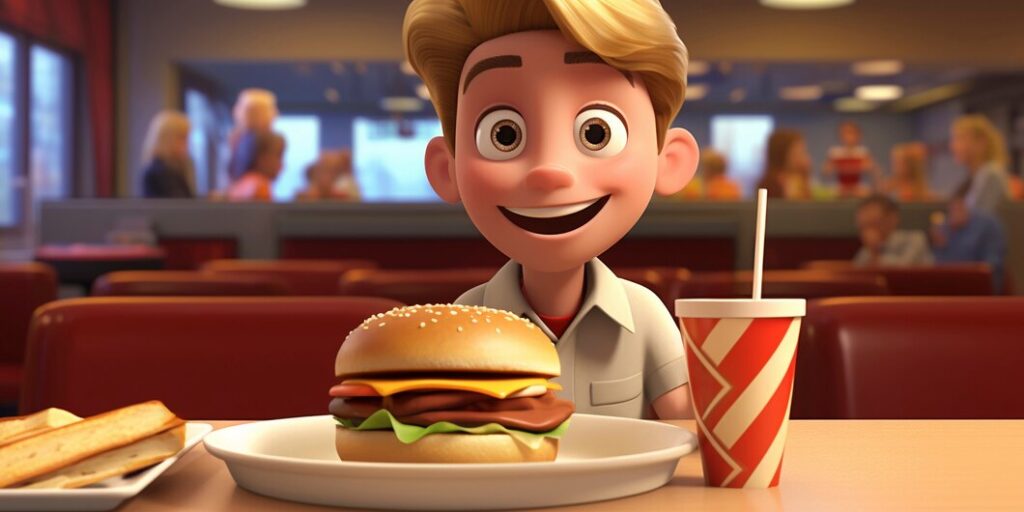Read time 5 minutes
This blog is more than just a reflection; it’s an expression of deep gratitude. Thank you, Universe, for guiding me through recovery and continuing to bless me with health and resilience.
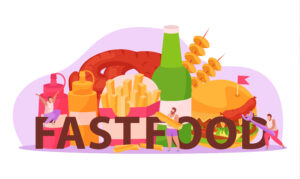
It was supposed to be one of those carefree moments: unapologetically savoring a greasy, delicious burger with extra toppings.
And then, just as I’m licking ketchup off my fingertips, my phone lights up. The headline?
“McDonald’s burger remains fresh after years.” Cue dramatic music, and my mood takes a sharp turn.
Wait, is this real? Can a burger survive for years without rotting?
This strange revelation shocked me into reflection.
In 1999, David Whipple bought a McDonald’s burger and forgot it in his coat pocket. Years later, he found it, looking shockingly fresh. The bun hadn’t molded. The meat hadn’t decomposed. Just… preserved. Like some kind of fossil of fast food!!
This story, although amusing at first, revealed a deeper concern:
What’s in our food? What allows something meant to be consumed fresh to resist aging for decades? What are we feeding ourselves?
The Sneaky Rise of Synthetic Chemicals
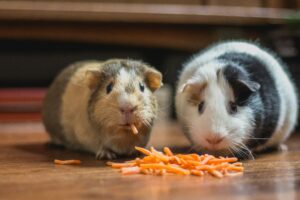
We live in a world of convenience, and it’s all about shortcuts.
From the packaged snacks in our kitchen to the shampoos on our shelves, synthetic chemicals are everywhere. They sneak into our lives disguised as flavors, colors, enhancers, and preservatives. And while they promise longer shelf lives and richer tastes,
but…what do they cost us in the long run?
This isn’t about panicking, it’s about awareness. Because sometimes, the consequences of these everyday chemicals can be life-altering. I’ve experienced that first-hand.
My Health Journey: When Life Took a Sudden Turn
Back in 2016, I was diagnosed with a rare neurological condition called Isaacs’ Syndrome. It causes continuous muscle fiber activity, meaning my muscles were overactive and constantly twitching.
Around the same time, I discovered I also had Lyme disease, a bacterial infection caused by tick bites. To make matters more complicated, Glaucoma crept in, affecting my eyes. Then came Membranous Glomerulonephritis, a kidney condition. I was dealing with multiple layers of health problems.
And as if that wasn’t enough, other conditions followed like uninvited guests:
It was a storm, and ultra-processed food wasn’t helping.
How Ultra-Processed Foods Worsened My Health
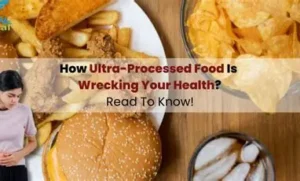
Living with chronic illness is difficult, and even every bite one takes matters.
At the time, my lifestyle had been fast-paced, it was about long workdays, limited movement, poor sleep, and, unfortunately, poor nutrition choices.
Processed snacks were my go-to. Quick bites between calls, sugary sips during meetings, and late-night junk food comfort.
But the toll was undeniable:
- My gut was in chaos. Acid reflux, bloating, and poor digestion became daily battles
- My appetite shrank, and whatever I did eat aggravated my conditions
- Inflammation worsened, a silent contributor to multiple issues
- Managing weight became a struggle, especially with diabetes and joint issues involved.
Ayurvedic experts confirmed what I already suspected: these foods weren’t nourishing me—they were aggravating me.
I was advised to steer clear of anything ultra-processed and once I did, I felt the difference.
What Exactly Are Ultra-Processed Foods?
Let’s break it down.
Processed foods are any foods modified from their natural state. This includes basic changes like chopping, cooking, freezing, or pasteurizing. Most home-cooked meals count as “processed” in some way.
But ultra-processed foods? They’re a whole different story.
These are industrial creations that often don’t resemble anything grown from the earth. Think:
- Packaged snacks (chips, cookies, microwave meals)
- Sugary drinks
- Instant noodles
- Ice creams and sweetened breads
They usually contain:
- Added sugars and salt
- Preservatives and texturizers
- Artificial colors and flavors
- Emulsifiers, stabilizers, and other synthetic chemicals
Why are they a problem?
- They lack vitamins and minerals
- They contribute to weight gain and energy crashes
- They disrupt metabolism
- They’re linked to Type 2 diabetes, heart disease, and even cancer risks
- Some studies show they affect mental health and increase risks for depression
Most concerning?
They may harm gut health, affecting digestion, immunity, and even hormone balance.
Making the Shift: Small Habits, Big Changes
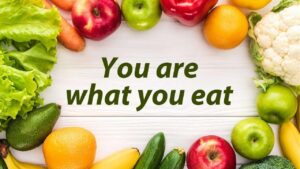
Let’s be real: processed food is everywhere. Avoiding it completely can feel impossible. But even mindful tweaks can make a massive difference.
Here’s what I did:
- Label check: I always read ingredient lists now. If the label looks like a chemistry textbook, I put it back.
- Go organic & whole: Fresh fruits, veggies, grains, and legumes became staples.
- Avoid synthetic additives like L-cysteine, BPA, phthalates, perchlorates, etc.
- Say no to fast food: I stock up on healthy snacks to avoid impulse junk-eating.
- Eat Home-made: Home food is magic. It’s fresh, personal, and nourishing.
- Rinse produces wisely: I soak fruits and vegetables in a bit of vinegar or baking soda before using.
- Use glass jars: Plastic can contain chemicals, so I switched to glass containers.
None of these steps was an overnight fix. I had cravings, slip-ups, and frustrations. But slowly, my body adapted. Energy returned. Gut relief came. Healing became possible.
Awareness Is Everything
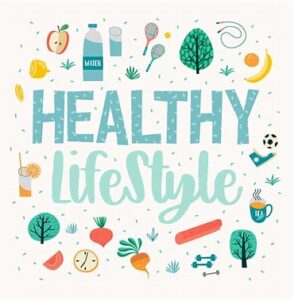
So many of us grow up unaware of what goes into the food we consume. We trust that if it’s on the shelf, it must be fine. But knowledge is power, and awareness leads to healing.
I didn’t realize the long-term consequences of chemical-laced food until my body started breaking down. My doctor once told me, “Nutrition is the key that determines health outcomes.”
That hit me hard.
Genes may be the blueprint, but food is what activates them. And bad food? It can switch on genes linked to illness.
Final Thoughts: Choosing Health, One Bite at a Time
Ultra-processed food isn’t just unhealthy—it’s disruptive. It affects your body at a cellular level. And for someone with existing health challenges, it can be catastrophic.
But there’s good news too: you can turn the tide.
- Start small
- Be mindful
- Educate yourself
- Read labels
- Choose fresh
- Cook more
- Listen to your body
This isn’t a rigid rulebook—it’s an invitation to reclaim your health. Let’s protect our loved ones by making informed decisions. Let’s build a future where food nourishes us, not harms us.
May this piece inspire awareness, healing, and hope.
DISCLAIMER
The views expressed above in this article are the author’s own and do not represent any kind of medical advice.


